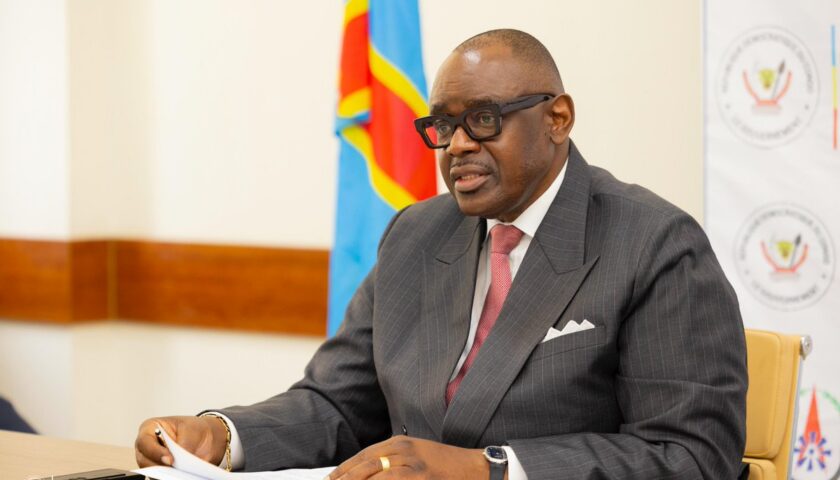(Bloomberg ) Lusaka-Kinshasa, Monday 07 September 2015 – Glencore Plc’s decision to suspend production at units in the Democratic Republic of the Congo and Zambia will halt about a quarter of the countries’ copper output and confront their governments with the potential of job losses a year before elections, analysts said.
Glencore’s announcement that it will suspend copper and cobalt production at Katanga Mining Ltd. is a “major blow” to the Congolese government of Joseph Kabila, Ahmed Salim, senior associate at New York advisory firm Teneo Intelligence, said in an e-mailed response to questions.
“With presidential and legislative elections slated for late 2016, the Kabila government will be extremely concerned about the fallout from worsening economic expectations and potential job losses.”
For Zambia, Glencore’s move “is a shocker,” Oliver Saasa, chief executive officer of Premier Consult Ltd., said by phone from Lusaka, the capital. “It may just be the beginning” as other mining companies consider following suit following a slump in commodities prices, he said.
Glencore will stop production at Mopani in Zambia and at Katanga Mining for 18 months while the company builds new processing facilities that will lower output costs, the Baar, Switzerland-based commodities supplier and trader said Monday.
Katanga Mining accounted for 28 percent of copper output last year in the Congo, Africa’s largest producer of the metal, and employs more than 5,000 people, according to the company’s annual statement. Mopani, the largest employer among Zambian mines, accounts for about 26 percent of the country’s production.
Valery Mukasa, chief of staff to the Congo’s Minister of Mines, said the government wasn’t able to comment because it hadn’t been officially informed of the shutdown by Glencore or Katanga Mining.
Chishimba Kambwili, a Zambian government spokesman, referred queries on Mopani’s suspension to Mines Minister Christopher Yaluma, who didn’t answer calls to his mobile phone.
The country, which relies on copper for 70 percent of its exports, is due to hold general elections next year.
A Glencore spokesman declined to comment on any potential job losses. The company Monday outlined a $10 billion debt-reduction plan and said it proposes to sell about $2.5 billion in new shares and assets valued at as much as $2 billion. It will also suspend dividend payments.
“The copper suspension is starting immediately,” Glencore CEO Ivan Glasenberg said during a conference call about the debt-reduction plan. “Right now, we will get into effect.”
Tax Revenue
Katanga Mining is a major tax payer in the Congo, with its operating subsidiary Kamoto Copper Co. declaring $298.8 million in combined taxes in 2013. That made it the single biggest tax payer in the mining industry that year, according to a report by the Oslo-based Extractive Industries Transparency Initiative. “With copper prices at their lowest levels in six years, the country faces the prospect of a major financing crunch,” Ronak Gopaldas, head of country risk at Rand Merchant Bank, said by e-mail. “Kinshasa’s buffers to absorb such a shock are weak.”
Glencore’s decision could prompt producers in both countries confronted by weak prices and power shortages to follow its lead, analysts said.
“Despite the good resources in the DRC, there is the potential for more assets to be placed on care and maintenance,” said Ben Davis, a mining analyst at Liberum Capital in London.
Vedanta Resources Plc’s Konkola Copper Mines unit in Zambia said Sept. 4 it sent 133 workers on “recess” as it reviewed its Nchanga operations, while CNMC Luanshya Copper Mines Plc said Monday it was suspending operations at its Baluba mine. Workers not involved in care and maintenance operations will go on leave, the company said.
Costs, Power
“The Glencore announcement has added fuel to the fire, with several miners indicating that mining operations are not viable amid high operational costs, policy opacity and a power crisis,” NKC African Economics analysts Cobus de Hart and Irmgard Erasmus said in a note to clients.
Zambia’s kwacha has slumped 25 percent against the dollar this quarter, the most among more than 150 currencies monitored by Bloomberg. It weakened to a record 10.28 per dollar after Glencore’s announcement, before paring its losses.
“The far-reaching impact is what it means to the wider economy,” said Premier Consult’s Saasa. “You may end up with a spiral effect.”
MMG Ltd., an indirect subsidiary of China Minmetals Corp., which operates the Kinsevere mine in the Congo, said it would not be halting copper production and said the Glencore shutdown should ease the power supply deficit.
Energy Boost
“Unfortunately, this will affect DRC mining output for 2015, but it could have a positive impact on energy, » said Freddy Elonga, head of external relations for MMG in Congo, in an e-mailed response to questions. Power shortages in Katanga province due to the failure of the state-owned electricity company to deliver on contracts was already expected to reduce this year’s output. In response to lower copper prices, Elonga said that MMG had taken steps to reduce costs and to secure electricity from Zambia.
The looming elections in the two African countries could yet mean that the Glencore shutdowns aren’t fully implemented, Patrick Jones, an analyst with Nomura in London, said in an e-mailed note to clients. Political pressure could prompt the company to scale back on the plans, he said.
“Maintaining employment is critical for political support and avoiding social unrest,” said Jones.
Peter Grauer, the chairman of Bloomberg LP, the parent of Bloomberg News, is a senior independent non-executive director at Glencore.





